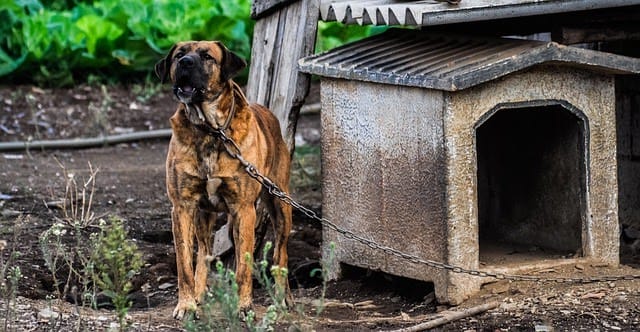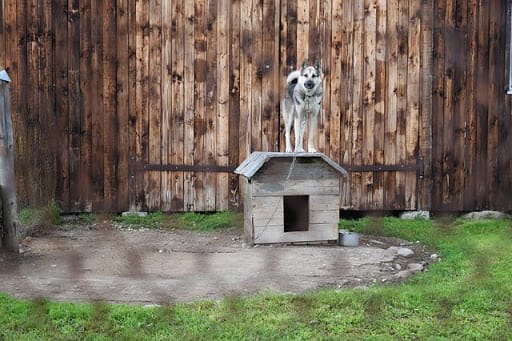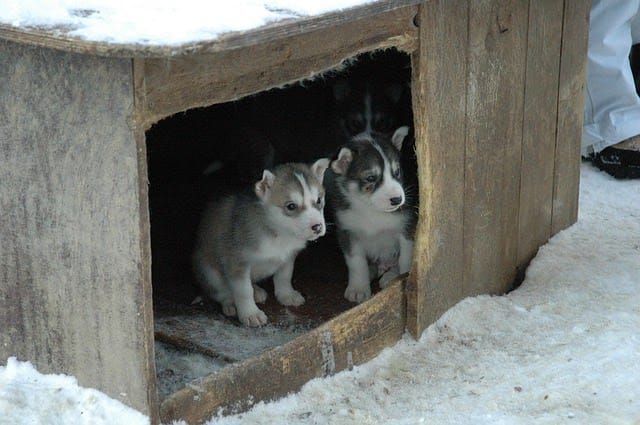
Dogs are the most adorable, cute creatures and are considered man’s best friend. No wonder people are spending hundreds, even thousands of dollars to buy a dog. But, before you buy a dog, you should do your own research about the dog that you want to buy, especially whether your dog is from a puppy mill.
So, why should you know if your dog is from a puppy mill?
And here are some frequent questions asked about a puppy mill!
FAQ
Puppy mills, also called puppy farms, describe a large-scale dog breeding that has a purpose only for enterprise, commercial, and trade.
Reputable breeders take responsibility for their dogs, including checking their dogs to the veterinarians. On the other hand, puppy mills treat dogs only for commercial use so they don’t pay full attention to their dog’s health.
It’s hard to tell at first glance if a dog is from a puppy mill, but most of the breeders won’t show the dog’s environment where they raised it since puppy mills have poor condition kennels.
When you decide to buy a dog, you should know the dog’s pedigree as closely as possible to regret your decision to buy a dog from a puppy mill.
Why is it important to know if your dog is not from a puppy mill?

If you’ve probably heard about the puppy mills you’ll know how horrible the dogs could be, but if you haven’t heard yet, the dogs from puppy mills often have poor health due to the poor treatment.
Puppy mills existed because of the high demand for dogs, and many people are willing to pay a high price for a dog.
Because of this fact, puppy mill breeders don’t care about their dog’s condition and behavior, all they care about is that someone will buy a puppy so they can get lots of money.
Most of the dogs that were raised in puppy mills have health issues and behavioral problems since they never consult the dogs to the veterinarians or train and exercise their dogs properly.
That’s why it is very important to know whether your dog was raised in puppy mills or not since you don’t want to waste your money on a dog that misbehaves or suffers from many critical health problems.
How bad are the dogs treated in a puppy mill?
Since puppy mills only run for profit, that’s why they never have the intention to take care of or create a proper safe and healthy living environment for their dogs. And here are some facts about how the dogs were treated in a puppy mill.
- Horrible living conditions
Dogs raised in a puppy mill living in the kennel are rarely cleaned or worse, never. So you might find that they are sitting on their own feces and urine.
That’s why dogs that are raised in puppy mills have critical health problems and diseases such as heart, kidney, glaucoma, anemia, cataract and Disorders within the musculoskeletal system.
- Lack of medication
Living in a dirty and unsafe environment makes the dogs in the mill need medical attention. But the breeders won’t pay attention to their health, they won’t even consult the veterinarians or give the puppies vaccines.
- Behavioral problems
Dogs that are under the care of a reputable breeder are generally friendly and eager to meet new people. But dogs that lived in a puppy mill mostly suffer from a lack of adequate socialization, that’s why they can be shy, fearful, or aggressive.
- Breeding female needs to breed continuously
The horrifying fact of the puppy mill is that the breeding females are treated poorly and they need to breed continuously. It is because the main objective of the puppy mills is to boost their profit.
The female breeding hardly has time to recover from breeding, and once these female dogs can no longer breed, they are typically killed
What are the signs of the dog from a puppy mill?

Before you buy a puppy, make sure to check the pedigree of the puppy so you won’t regret it if you get a dog from a puppy mill. And here are the signs of the dog that comes from a puppy mill!
- Most dogs from puppy mills don’t have a parent since they were separated at their early ages. So if the breeder won’t show you the dog’s mother, you should be careful and check other signs.
- A dog from a reputable breed often smells like a new baby since the breeder cares about it’s hygiene. On the other hand, the a dog from a puppy mill smells like a kennel and often be dirty
- Ask how many dogs they have. A good breeder is more likely to have few dogs at the same time with a few dog breeds as well. It’s because they invest their time taking care of the dogs.
- Check the puppy’s age that they offer. Newborn puppies shouldn’t be taken away from their mother for at least six weeks, though eight weeks is recommended.
- A good breeder will provide you with the paperwork to assure you about the dog’s pedigree. Even if you don’t need it, they still care where their puppy goes.
- Most reputable breeders invite you to their home to check on the puppy. If you are invited to a neutral spot, there is a chance that the puppy they offer is from puppy mill since they don’t want you to find out the horrible living environment of the puppy.
- Ask the breeder if the puppy and the mother is properly vaccinated. Dogs from a puppy mill are rarely vaccinated or never.
Conclusion
Most puppy mill dogs often die than the average of their breed due to health problems while they were raised. Though puppy mills offer you many kinds of dog breeds, it will still be a problem in the future.
So where should you buy a puppy?
Rather than purchasing a puppy from an unknown breeder which can cause you to get scammed for a puppy or end up having a puppy with a bad health condition, it’s probably the best option to buy from an animal shelter in your city or ask your friends and family for a reputable breeder.

